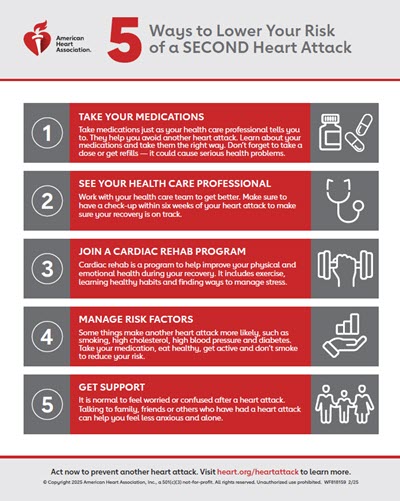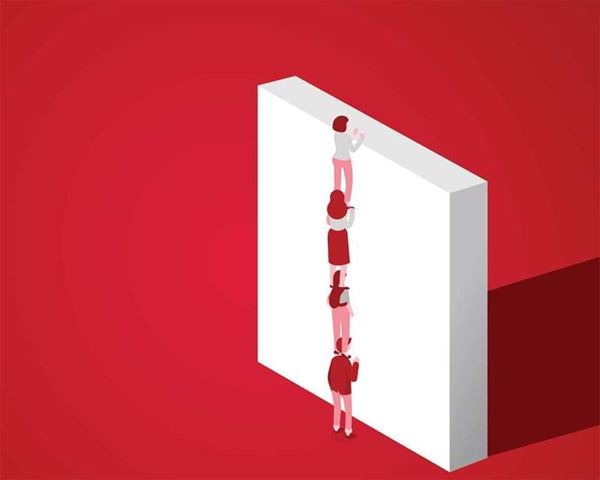Life After a Heart Attack
Quick Facts
- It’s normal to feel scared, confused and overwhelmed after a heart attack.
- There are steps you can take to help prevent another heart attack.
Explore and embrace your options
You had a heart attack. Now what?
Many people feel scared, confused and overwhelmed after a heart attack. A heart attack is a life-changing event.
After your treatment, you likely received instructions and a lot of information from your health care team. With time to reflect, you may be trying to understand what happened. You likely want to know what you can do to avoid future heart problems.
Navigating the road to recovery can be challenging. Questions, confusion, uncertainty and fear are common. Get answers to your questions and learn more about what to expect.
5 ways to prevent another heart attack
Make preventing another heart attack your first priority
After a first heart attack, most people go on to live a productive life. But more than a quarter of patients are readmitted to the hospital within 90 days of discharge. This is a critical time when new problems, including second heart attacks, can arise. Second heart attacks within that 90-day window are linked to nearly a 50% chance of death within five years.
To maintain your health — and avoid another heart attack — follow your treatment plan and focus on a heart-healthy lifestyle.
From Hospitalization to Healthy
When Carolyn, Trip, Ed and Margarita had heart attacks, they felt afraid and unprepared for what might come next. Follow their journeys from the hospital to a healthier life with this video series. It focuses on:
- The experience of hospitalization and discharge
- Managing their risk of a second heart attack
- The family and friends who rallied to help during the first 90 days
- The lifestyle changes they made to improve their health
Here are five things you can do to help prevent another heart attack:
Take your medications as prescribed. Some medications can greatly lower your risk of another heart attack. It’s important to understand your medications and take them correctly. Learn about managing your medications.
Attend your follow-up appointments. Attending follow-up appointments will help your health care team track your condition and recovery. You can make the most of your time with your health care professionals by preparing for your appointment.
Participate in cardiac rehabilitation. Cardiac rehab is a medically supervised program to help you get better after a heart attack. You should have received a referral to cardiac rehab when you left the hospital. If you didn’t, ask your your primary health care professional or cardiologist. Learn more about cardiac rehab.
Manage your risk factors. It’s important to take your medications, quit smoking, eat healthy foods and get active. This will help you manage your blood pressure, cholesterol and blood sugar levels. Find out more about managing your risk factors.
Get support. It’s normal to feel scared, overwhelmed or confused after a heart attack. Getting support from loved ones or from people who have also had a heart attack can help you cope. Connect with other heart attack survivors and caregivers through our Support Network.

See 5 Ways to Lower Your Risk of a Second Heart Attack (PDF) | Spanish (PDF)







